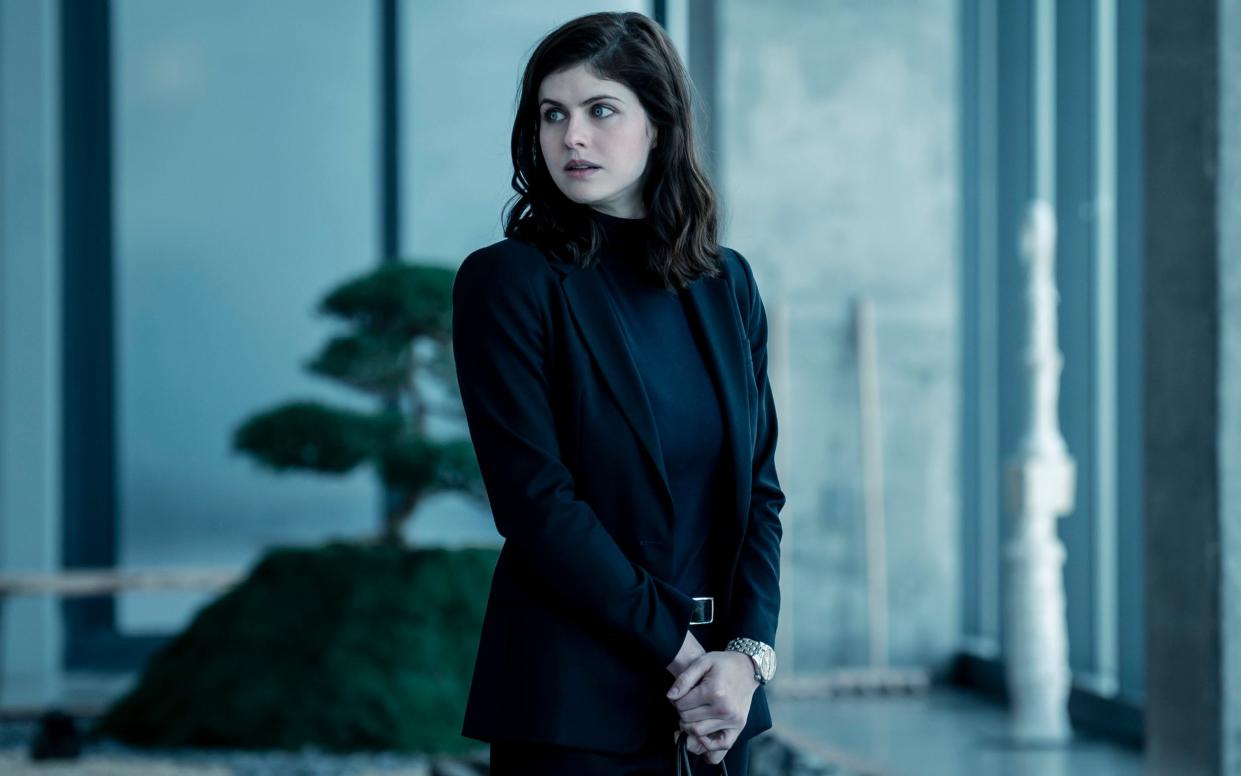Mayfair Witches, review: Anne Rice supernatural thriller turned into dreary hokum-pocus

I can’t tell you if Anne Rice’s Mayfair Witches trilogy is good, because I’ve never read it. I can tell you that the TV adaptation, shown first in the US and now on BBC Two, is not.
The eight-part, boxsetted series begins with a woman who has been drugged into a stupor, and the drama has the same energy. There are two storylines, which come together by the end of episode one. A semi-comatose Deirdre (Annabeth Gish) sits with blank face and oddly blue eyes on the veranda of a Southern Gothic mansion. In flashback, we see her as a schoolgirl, going to a party thrown by a camp uncle (Harry Hamlin) and attended by a snake.
Then we’re in San Francisco with a neurosurgeon called Rowan (The White Lotus star Alexandra Daddario), who is alarmed to discover that she can hurt people with the power of her mind. Lingering around the place is Lasher, a creepy demon whom you will not be able to take seriously if you’ve seen Matt Berry in the vampire comedy What We Do in the Shadows.
The drama differentiates between these scenes by shooting New Orleans in a haze and bathing San Francisco in an icy light, a schematic choice which illustrates the general lack of sophistication at work. Future episodes go back to “Donnelaith, Scotland, 1681”, where the peasants wear fetching rags and speak in ropey Scottish accents more terrifying than any witchcraft.
Fundamentally, the show is not frightening. It’s not even unsettling, which is a baseline requirement. Only Hamlin embraces the baroque nature of the tale; everyone else trudges through as if appearing in the kind of forgettable films that Channel 5 shows at 2pm on a Tuesday.
Daddario, as the character being introduced to this world of weirdos, does her best but is hampered by dull direction and a poor script. It is aimed, I think, at hormonal teenage girls. Certainly, it is meant for a female audience because Rowan’s supernatural skills really come to the fore whenever someone starts mansplaining.
Early on, she delivers a speech to a powerful man: “I’m pretending that I find you interesting, pretending that I think you’re smarter than me, pretending that I admire you. But I don’t. In fact, I see through you to this small, needy man-child with a raging ego.” Then she does her brain thing and makes him collapse. Rowan ends up in New Orleans exploring the source of her powers and her link to Deirdre. Things get even drearier. I’ve heard the books are good, so stick with those.


